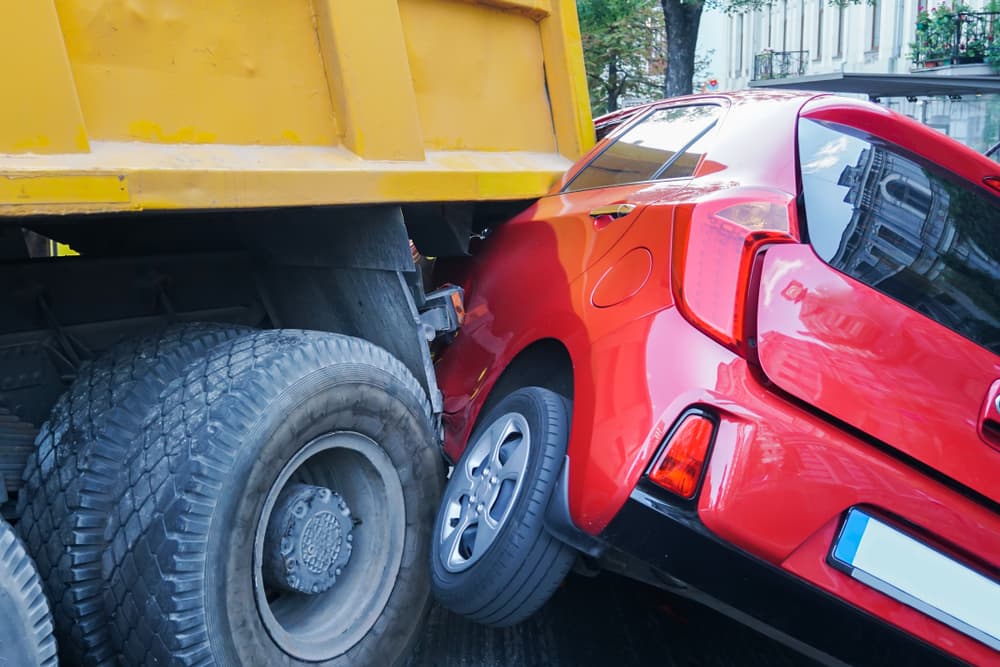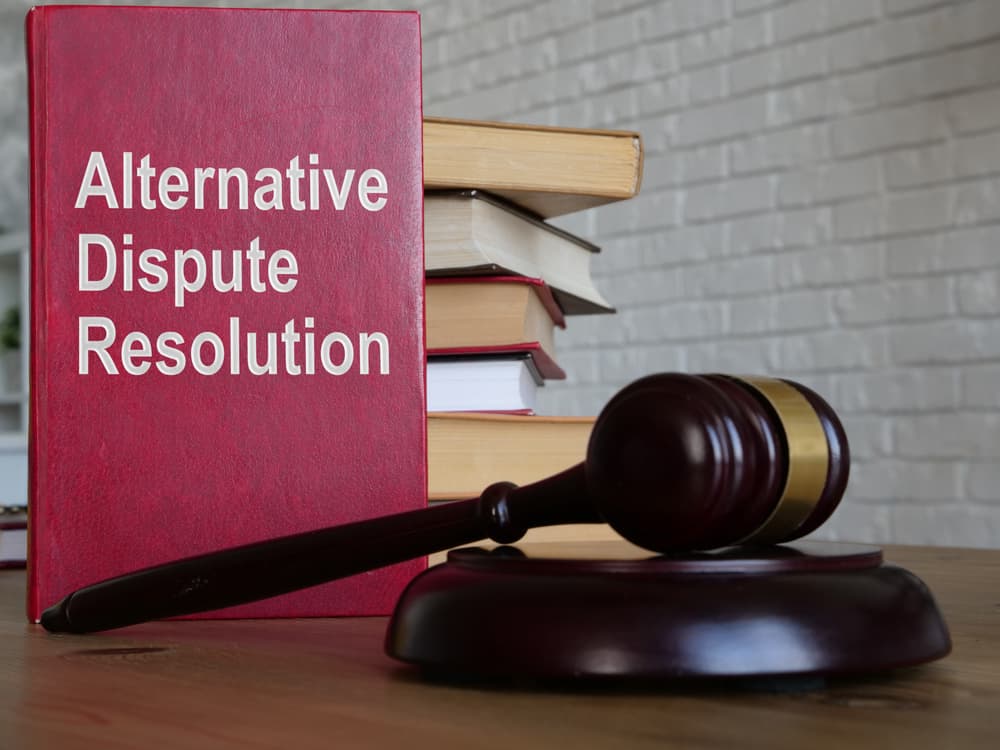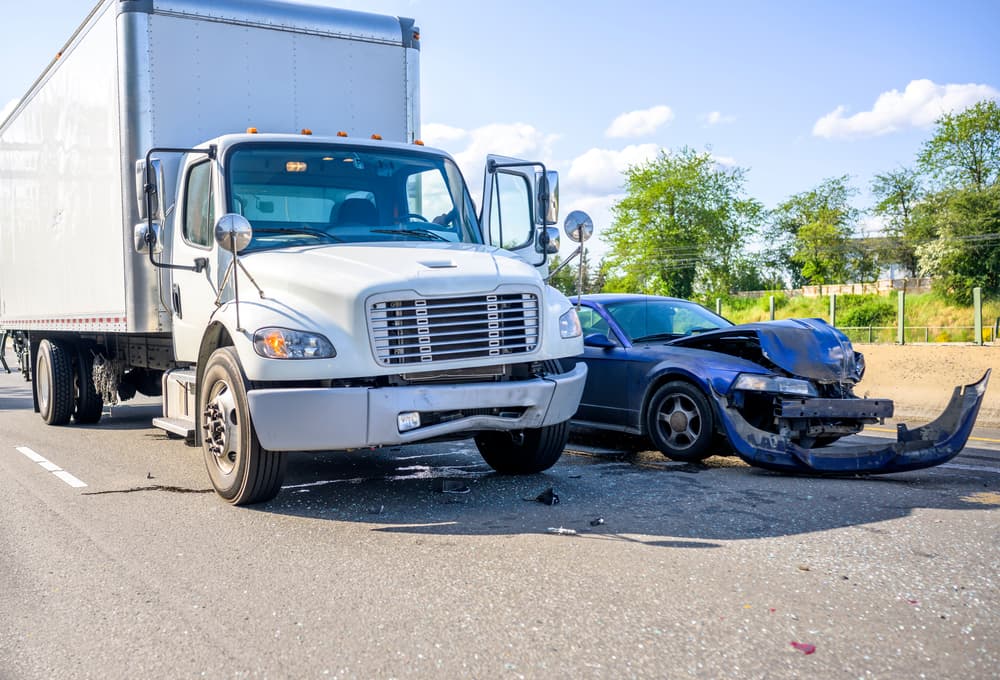Trucking accidents frequently happen when truck drivers, trucking companies, and others make serious mistakes. Since commercial trucks are significantly larger and heavier than other vehicles, the occupants of the smaller vehicles are more likely to suffer injuries in a collision scenario.
If you sustained injuries in a recent accident that a negligent truck driver or trucking company caused, it’s important to remember that you have legal options. A skilled truck accident attorney can pursue a claim or lawsuit on your behalf, negotiate with the insurance company, and fight for the compensation you deserve.
Both Truck Drivers and Trucking Companies May be at Fault for the Accident

Trucking accidents can be severe due to the size and weight of trucks, often leading to significant damage and injuries. When a trucking accident occurs, the truck driver or the trucking company may be responsible if the accident victim can establish negligence. Here are some key ways that this negligence can manifest:
- Driver Fatigue—Truck drivers often spend long hours on the road, leading to fatigue. Federal regulations limit driving hours to prevent this, but sometimes drivers exceed these limits to meet tight deadlines. Fatigue reduces reaction times and decision-making abilities, increasing the risk of serious accidents.
- Impaired Driving – Operating a truck while under the influence of alcohol, drugs, or certain medications is extremely dangerous. Impaired drivers have compromised judgment and slower reaction times, making it hard to operate a vehicle safely.
- Speeding and Reckless Driving – Truck drivers may speed to meet delivery schedules or engage in reckless behaviors like tailgating or aggressive lane changes. Such actions are hazardous, as trucks require longer distances to stop and are less maneuverable than smaller vehicles.
- Inadequate Training—Truck drivers need special training to handle large vehicles safely. If a company hires inadequately trained drivers or fails to provide ongoing training, it can lead to improper truck handling, increasing the risk of accidents.
- Vehicle Maintenance Issues—Regular inspection and maintenance are necessary to ensure trucks are in good working condition. Negligence in maintenance, such as failing to fix brake issues or ignoring worn-out tires, can cause mechanical failures on the road.
- Overloading – Overloading a truck beyond its capacity can make it difficult to control and more likely to tip over or cause tire blowouts. Trucking companies may overload trucks to maximize profits, disregarding safety regulations.
- Improper Cargo Securement – Cargo must be properly secured to prevent shifting or falling off the truck. Improperly secured cargo can shift, leading to loss of control, or fall onto the road, creating hazards for other vehicles.
- Distracted Driving – Truck drivers may use mobile phones, eat, or engage in other distractions while driving. Distracted driving takes attention away from the road and can lead to accidents.
- Failing to Follow Traffic Laws – Truck drivers must adhere to all traffic laws, including speed limits, signals, and signs. Ignoring these laws increases the risk of collisions.
You are not alone if you suffered injuries in a truck accident resulting from driver or company negligence. A knowledgeable truck accident lawyer can evaluate your legal options and pursue the compensation you deserve for your injuries.
Accident Victims Have the Legal Burden of Proof in a Truck Accident Claim or Lawsuit in South Carolina
In a truck accident case, the accident victim who wants to recover damages has the legal burden of proof. This means they must show enough evidence to convince the court (or the insurance company) that the truck driver or trucking company was responsible for the crash. There are several key legal elements that the victim must satisfy to meet this burden of proof:
- Duty of Care – First, the victim must prove that the truck driver or trucking company owed them a duty of care. This means showing that the truck driver was responsible for operating the vehicle safely and following traffic laws. All drivers on the road have this duty, including truck drivers.
- Breach of Duty – Next, the victim must demonstrate that the truck driver or trucking company breached this duty of care. A breach occurs when the truck driver acts carelessly or recklessly. Examples include speeding, driving while fatigued, or failing to maintain the truck properly. Evidence like traffic camera footage, witness statements, and police reports can help to establish a breach of duty.
- Causation – The victim must then prove that the truck driver’s breach of duty directly caused the accident. This means showing a clear link between the truck driver’s actions and the accident. For instance, if the truck driver was texting while driving and hit another vehicle, then texting is the cause of the crash.
- Damages – Finally, the victim must demonstrate that they suffered actual damages because of the accident. Damages can include physical injuries, emotional distress, medical expenses, lost income, and property damage. Medical records, repair bills, and testimony from healthcare providers can serve as evidence of these damages.
In addition to these four elements, the victim may need to collect and present various types of evidence. This can include accident scene photos, black box data from the truck, and expert testimony. Expert witnesses, like accident reconstruction specialists, can explain complex details about how the truck accident happened and who was at fault.
The burden of proof in a civil case like this is typically “preponderance of the evidence.” This means the victim must show that the truck driver or trucking company was more likely than not responsible for the collision.
The Insurance Company is not on Your Side
In a truck accident case, it’s important to understand that the insurance company is not on your side. Even though you may expect them to help you recover from your losses, their primary goal is to protect their profits. This often means paying out as little as possible in monetary settlements.
Why the Insurance Company Isn’t on Your Side
- Profit Motive – Insurance companies are businesses whose main objective is to make money. Every dollar they pay out in claims is a dollar less in profit. As a result, they often try to minimize the amount they have to pay.
- Adjusters’ Role – Insurance adjusters are trained to handle claims in a way that favors the company. They may seem friendly and concerned, but their job is to protect the insurance company’s interests. They may downplay the severity of your injuries or question the necessity of your medical treatments.
- Delay Tactics – Sometimes, insurance companies use delay tactics to frustrate claimants. They may repeatedly request more information or take a long time to respond. The hope is that you will become desperate and accept a lower settlement offer.
The Settlement Negotiation Process
- Initial Offer – After you file a claim, the insurance company will investigate the accident and your injuries. They will likely make an initial settlement offer. This offer is usually low, hoping you will accept it quickly.
- Demand Letter – If you believe the initial offer is too low, your attorney can send a settlement demand letter. This letter outlines the details of the truck accident, the extent of your injuries, and the amount of compensation you seek. It should be supported by medical records, bills, and other evidence.
- Negotiation – The insurance company adjuster will review the demand letter and may counter with a higher offer, which is still lower than you requested. This begins the negotiation process. Both sides will go back and forth, presenting arguments and evidence to support their positions.
- Settlement Agreement – If you reach an agreement, the insurance company will ask you to sign a settlement agreement. This document states that you accept the payment and agree not to pursue further legal action regarding the accident.
- Potential Litigation – If negotiations fail, you may decide to file a lawsuit. This step can pressure the insurance company to offer a fair settlement to avoid a court case, which may be more costly and time-consuming for them.
Remember, having an experienced truck accident lawyer on your side can be crucial in dealing with insurance companies. They can navigate the negotiation process and ensure you receive a fair settlement offer.
You May be Eligible for Various Types of Compensation
If you suffered an injury in a truck accident, you may be eligible to recover various types of compensation, known as damages. These damages should cover your losses and allow you to get back on your feet. Here are the main types of compensation you may recover:
- Past and Anticipated Medical Costs – One of the most significant types of compensation is for medical expenses. This includes the cost of emergency room visits, hospital care, surgeries, doctor appointments, and any necessary medical treatments or therapies. It also covers future medical costs if you need ongoing care or rehabilitation.
- Lost Income – If your injuries prevent you from working, you can claim compensation for lost income. This includes the income you missed while recovering from the accident. If your injuries result in a long-term or permanent disability that affects your ability to work, you may also be entitled to compensation for future lost earnings.
- Property Damage – Truck accidents often damage vehicles and other personal property significantly. You can seek compensation to cover the cost of repairing or replacing your damaged property, including your car and any personal items inside it.
- Pain and Suffering – Pain and suffering compensation is for the physical pain and emotional distress you endure because of the accident. This type of compensation is more subjective and can vary widely depending on the severity of your injuries and their effect on your quality of life. Emotional distress, such as anxiety, depression, or PTSD, also falls under this category.
- Loss of Consortium – If the accident affects your relationship with your spouse, you may be eligible for loss of consortium damages. This type of compensation addresses the loss of companionship, affection, and support that results from your injuries.
- Other Out-of-Pocket Expenses – You can also seek compensation for other expenses related to the accident, such as transportation costs for medical appointments, home modifications needed for your recovery, or the cost of hiring help for household chores you can no longer perform.
In some cases, if the truck driver or trucking company’s behavior was particularly reckless or egregious, you may be awarded punitive damages. The main purpose of these damages is to punish the at-fault party, and they usually require clear evidence of intentional misconduct or gross negligence.
You May Have Various Litigation and Alternative Dispute Resolution (ADR) Options Available

Most truck accident cases settle out of court, but if this doesn’t happen in your case, you may pursue litigation in the state court system.
One option is to take your case to a jury trial. At a jury trial, your lawyer will present evidence, call witnesses (including yourself) to testify, and make arguments about why you are entitled to monetary compensation. The jury will then deliberate and decide the case.
As an alternative to taking your case to trial, you might pursue one or more ADR options. One such option is mediation, where a neutral mediator meets with the parties and engages them in focused settlement discussions. After these discussions, the parties may choose to settle their case or take it to trial.
Another common ADR option following a truck accident is binding arbitration. In this scenario, a pre-selected, neutral arbitrator listens to the evidence and decides the amount of damages to award the injured accident victim. Unlike mediation, however, an arbitration award is typically binding and is not subject to appeal.
An experienced truck accident lawyer can discuss whether litigation or ADR is right for your case and circumstances.
Contact an Experienced South Carolina Truck Accident Lawyer in Your Area Today
If you suffered injuries in a truck accident, it’s important to have a skilled personal injury lawyer by your side, advocating for you throughout the process. Your attorney can aggressively fight for your rights during settlement negotiations – or in court – to recover the maximum compensation you deserve.
Consultations are free, and injury attorneys do not charge upfront fees to begin representing you. You have nothing to lose and much to gain by seeking representation from a trusted truck accident attorney now.







